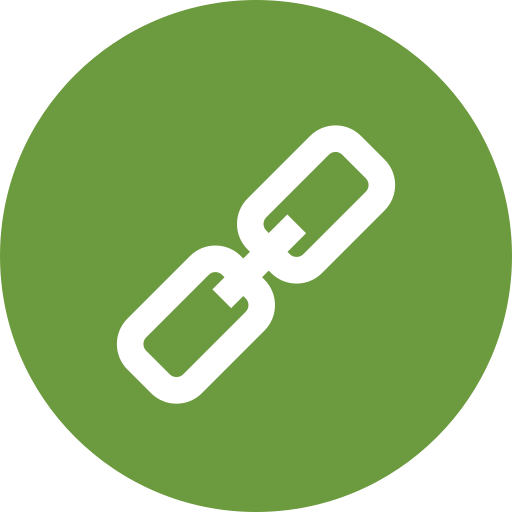| Package | Per pill | Total price | Save | Order |
|---|---|---|---|---|
| 100mg × 60 Pills | $0.62 | $37.14 + Bonus - 4 Pills | - | Add to cart |
| 100mg × 90 Pills | $0.53 | $47.91 + Bonus - 7 Pills | $8.10 | Add to cart |
Epitol 100 mg is a medication used to treat certain types of seizures and epilepsy. It is a generic version of the brand-name medication, Tegretol, and contains the active ingredient carbamazepine. In this article, we will provide a comprehensive guide to buying and using Epitol 100 mg, including information on how to order Epitol, buy Epitol, and purchase Epitol online from Canada.
What is Epitol 100 mg?
Epitol 100 mg is an anticonvulsant medication that works by reducing the frequency and severity of seizures. It is used to treat a variety of conditions, including:
- Partial seizures
- Generalized seizures
- Trigeminal neuralgia (a type of facial pain)
How to Buy Epitol 100 mg
There are several ways to buy Epitol 100 mg, including:
- Online pharmacies: You can purchase Epitol online from Canada or other countries, but make sure to choose a reputable online pharmacy that is licensed and regulated.
- Local pharmacies: You can also buy Epitol at a local pharmacy, but you may need a prescription from your doctor.
- Discount pharmacies: Some pharmacies offer discount Epitol 100 mg or cheap 100 mg Epitol options, so it's worth shopping around to find the best price.
Table 1: Comparison of Epitol 100 mg Prices
| Pharmacy | Price |
|---|---|
| Online Pharmacy 1 | $10.99 per 100 mg tablet |
| Online Pharmacy 2 | $12.99 per 100 mg tablet |
| Local Pharmacy | $15.99 per 100 mg tablet |
| Discount Pharmacy | $8.99 per 100 mg tablet |
Benefits of Buying Epitol 100 mg Online
There are several benefits to buying Epitol 100 mg online, including:
- Convenience: You can order Epitol from the comfort of your own home, without having to visit a physical pharmacy.
- Cost savings: Online pharmacies often offer discount Epitol 100 mg or cheap 100 mg Epitol options, which can save you money.
- Wider selection: Online pharmacies may offer a wider selection of medications, including generic 100 mg Epitol options.
How to Take Epitol 100 mg
To get the most benefit from Epitol 100 mg, it's essential to take it correctly. Here are some tips:
- Take the medication as directed: Follow the instructions provided by your doctor or pharmacist, and take the medication at the same time every day.
- Swallow the tablets whole: Do not crush or chew the tablets, as this can affect the way the medication works.
- Do not stop taking the medication suddenly: If you need to stop taking Epitol 100 mg, talk to your doctor first, as stopping the medication suddenly can cause seizures or other problems.
Side Effects of Epitol 100 mg
Like all medications, Epitol 100 mg can cause side effects. Some common side effects include:
- Dizziness or drowsiness
- Headache
- Nausea or vomiting
- Diarrhea or constipation
Table 2: Common Side Effects of Epitol 100 mg
| Side Effect | Frequency |
|---|---|
| Dizziness or drowsiness | 10% |
| Headache | 8% |
| Nausea or vomiting | 6% |
| Diarrhea or constipation | 4% |
Precautions and Interactions
Before taking Epitol 100 mg, it's essential to talk to your doctor about any precautions or interactions. Here are some things to consider:
- Pregnancy and breastfeeding: Epitol 100 mg may not be safe to take during pregnancy or breastfeeding, so talk to your doctor before taking the medication.
- Other medications: Epitol 100 mg can interact with other medications, including generic 100 mg Epitol options, so make sure to tell your doctor about all the medications you are taking.
- Allergies: If you have any allergies, talk to your doctor before taking Epitol 100 mg.
Conclusion
Epitol 100 mg is a medication used to treat certain types of seizures and epilepsy. By following the tips and guidelines outlined in this article, you can get the most benefit from this medication and purchase Epitol 100 mg safely and effectively. Remember to always talk to your doctor before taking any new medication, and to order Epitol from a reputable online pharmacy or local pharmacy.
Lists of Benefits and Precautions
Here are some benefits and precautions to consider when taking Epitol 100 mg:
- Benefits:
- Effective in treating seizures and epilepsy
- Available in generic 100 mg Epitol options
- Can be purchased online from Canada or other countries
- Precautions:
- May not be safe to take during pregnancy or breastfeeding
- Can interact with other medications
- May cause side effects, such as dizziness or drowsiness
Ordering Epitol 100 mg Online
If you are interested in ordering Epitol 100 mg online, here are some steps to follow:
- Choose a reputable online pharmacy: Make sure to choose a licensed and regulated online pharmacy that offers discount Epitol 100 mg or cheap 100 mg Epitol options.
- Fill out the online order form: Provide your personal and medical information, and select the generic 100 mg Epitol option you want to purchase.
- Pay for your order: Use a secure payment method, such as mastercard or amex, to pay for your order.
- Receive your order: Your Epitol 100 mg order will be shipped to you, and you can start taking the medication as directed by your doctor.
Epilepsy is a neurological disorder characterized by recurrent seizures, which are bursts of electrical activity in the brain. While petit mal seizures are a type of epilepsy, this article will focus on other forms of epilepsy and their relationship with maniacal conditions. Maniacal conditions, also known as manic episodes, are a symptom of bipolar disorder, a mental health condition that affects mood, energy, and activity levels.
Types of Epilepsy
There are several types of epilepsy, each with distinct characteristics and symptoms. Some of the most common types of epilepsy include:
| Type of Epilepsy | Description |
|---|---|
| Tonic-Clonic Seizures | Also known as grand mal seizures, these are the most common type of seizure. They cause loss of consciousness, muscle contractions, and convulsions. |
| Complex Partial Seizures | These seizures affect only one part of the brain and can cause a range of symptoms, including confusion, loss of consciousness, and repetitive movements. |
| Simple Partial Seizures | These seizures affect only one part of the brain and can cause a range of symptoms, including muscle contractions, numbness, and tingling. |
| Absence Seizures | These seizures are characterized by a brief loss of consciousness, often accompanied by a blank stare. |
| Myoclonic Seizures | These seizures cause brief, shock-like muscle contractions, often affecting the arms and legs. |
Maniacal Conditions
Maniacal conditions, or manic episodes, are a symptom of bipolar disorder. During a manic episode, individuals may experience:
- Increased energy and activity levels
- Elevated mood, often accompanied by irritability or anxiety
- Reduced need for sleep
- Increased self-esteem and confidence
- Impulsive behavior, such as excessive spending or reckless decisions
- Rapid speech and thought patterns
Maniacal conditions can be triggered by a range of factors, including stress, sleep deprivation, and certain medications.
The Relationship Between Epilepsy and Maniacal Conditions
Research suggests that there may be a link between epilepsy and maniacal conditions. Some studies have found that individuals with epilepsy are more likely to experience manic episodes, particularly those with a history of complex partial seizures. Additionally, some medications used to treat epilepsy, such as carbamazepine, have been shown to induce manic episodes in some individuals.
Causes and Risk Factors
The exact causes of epilepsy and maniacal conditions are not fully understood, but several risk factors have been identified. These include:
- Genetics: Both epilepsy and bipolar disorder have a strong genetic component, with individuals having a family history of the conditions being more likely to develop them.
- Head trauma: Head injuries, such as those sustained in car accidents or falls, can increase the risk of developing epilepsy.
- Infections: Certain infections, such as meningitis or encephalitis, can increase the risk of developing epilepsy.
- Brain tumors: Tumors in the brain can cause seizures and increase the risk of developing epilepsy.
- Stress: Stress can trigger seizures in individuals with epilepsy and manic episodes in those with bipolar disorder.
Symptoms and Diagnosis
The symptoms of epilepsy and maniacal conditions can vary widely, but some common symptoms include:
- Seizures: Epilepsy is characterized by recurrent seizures, which can cause a range of symptoms, including loss of consciousness, muscle contractions, and convulsions.
- Mood changes: Maniacal conditions are characterized by elevated mood, often accompanied by irritability or anxiety.
- Energy changes: Individuals with maniacal conditions may experience increased energy and activity levels, while those with epilepsy may experience fatigue and lethargy.
- Sleep changes: Individuals with maniacal conditions may experience reduced need for sleep, while those with epilepsy may experience sleep disturbances.
Diagnosing epilepsy and maniacal conditions can be challenging, but a range of tests and assessments can help. These include:
- Electroencephalogram (EEG): An EEG measures the electrical activity of the brain and can help diagnose epilepsy.
- Magnetic resonance imaging (MRI): An MRI uses magnetic fields and radio waves to produce detailed images of the brain and can help diagnose brain tumors or other structural abnormalities.
- Psychological assessments: Psychological assessments, such as the Beck Depression Inventory or the Young Mania Rating Scale, can help diagnose maniacal conditions.
Treatment and Management
Treatment and management of epilepsy and maniacal conditions depend on the individual and the severity of their symptoms. Some common treatments include:
- Medications: Anticonvulsant medications, such as carbamazepine or valproate, can help control seizures in individuals with epilepsy. Mood stabilizers, such as lithium or valproate, can help manage manic episodes in individuals with bipolar disorder.
- Lifestyle changes: Lifestyle changes, such as getting regular exercise, eating a healthy diet, and practicing stress-reducing techniques, can help manage symptoms of both epilepsy and maniacal conditions.
- Therapy: Therapy, such as cognitive-behavioral therapy or interpersonal therapy, can help individuals with epilepsy and maniacal conditions manage their symptoms and improve their quality of life.
Some benefits of therapy include:
- Improved mood regulation
- Increased self-esteem and confidence
- Better sleep quality
- Improved relationships with family and friends
- Increased ability to manage stress and anxiety
Complications and Prognosis
Both epilepsy and maniacal conditions can have significant complications and impact an individual's quality of life. Some potential complications include:
- Injury: Seizures can cause injury, particularly if an individual falls or experiences convulsions.
- Social isolation: Maniacal conditions can lead to social isolation, as individuals may withdraw from social activities or experience stigma and discrimination.
- Mood disorders: Individuals with epilepsy are at increased risk of developing mood disorders, such as depression or anxiety.
- Cognitive impairment: Repeated seizures can cause cognitive impairment, particularly in individuals with complex partial seizures.
The prognosis for individuals with epilepsy and maniacal conditions varies widely, depending on the severity of their symptoms and the effectiveness of their treatment. With proper treatment and management, many individuals with epilepsy and maniacal conditions can lead active and fulfilling lives.
Conclusion
Epilepsy and maniacal conditions are complex and multifaceted conditions that can have a significant impact on an individual's quality of life. While the exact causes of these conditions are not fully understood, research suggests that there may be a link between epilepsy and maniacal conditions. By understanding the symptoms, diagnosis, treatment, and management of these conditions, individuals can better manage their symptoms and improve their overall health and well-being.
Some key takeaways include:
- Epilepsy is a neurological disorder characterized by recurrent seizures.
- Maniacal conditions are a symptom of bipolar disorder, characterized by elevated mood and increased energy and activity levels.
- There may be a link between epilepsy and maniacal conditions, with individuals with epilepsy being more likely to experience manic episodes.
- Treatment and management of epilepsy and maniacal conditions depend on the individual and the severity of their symptoms.
- Lifestyle changes, such as getting regular exercise and practicing stress-reducing techniques, can help manage symptoms of both epilepsy and maniacal conditions.
By working together with healthcare professionals and loved ones, individuals with epilepsy and maniacal conditions can lead active and fulfilling lives, despite the challenges posed by these conditions.
























